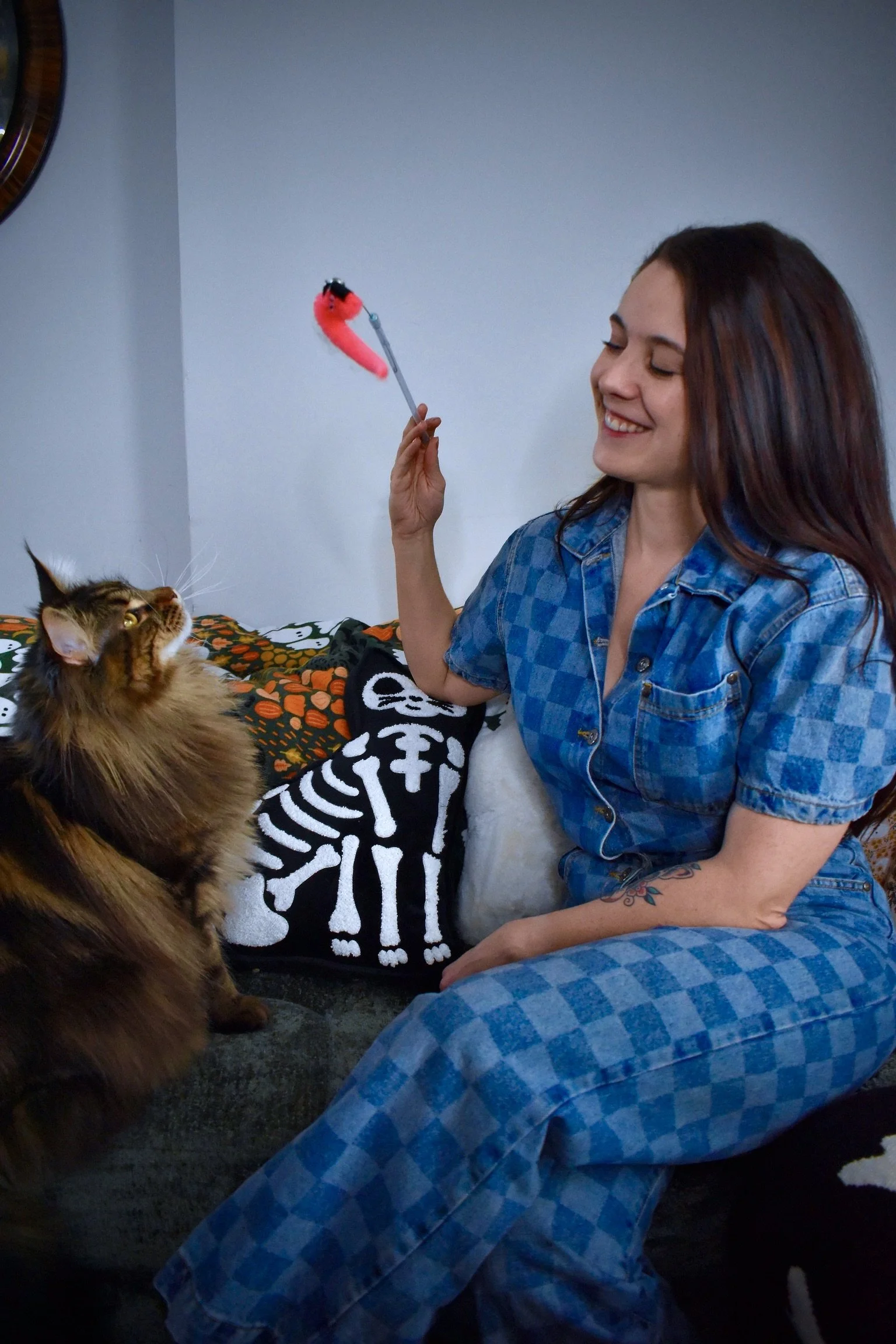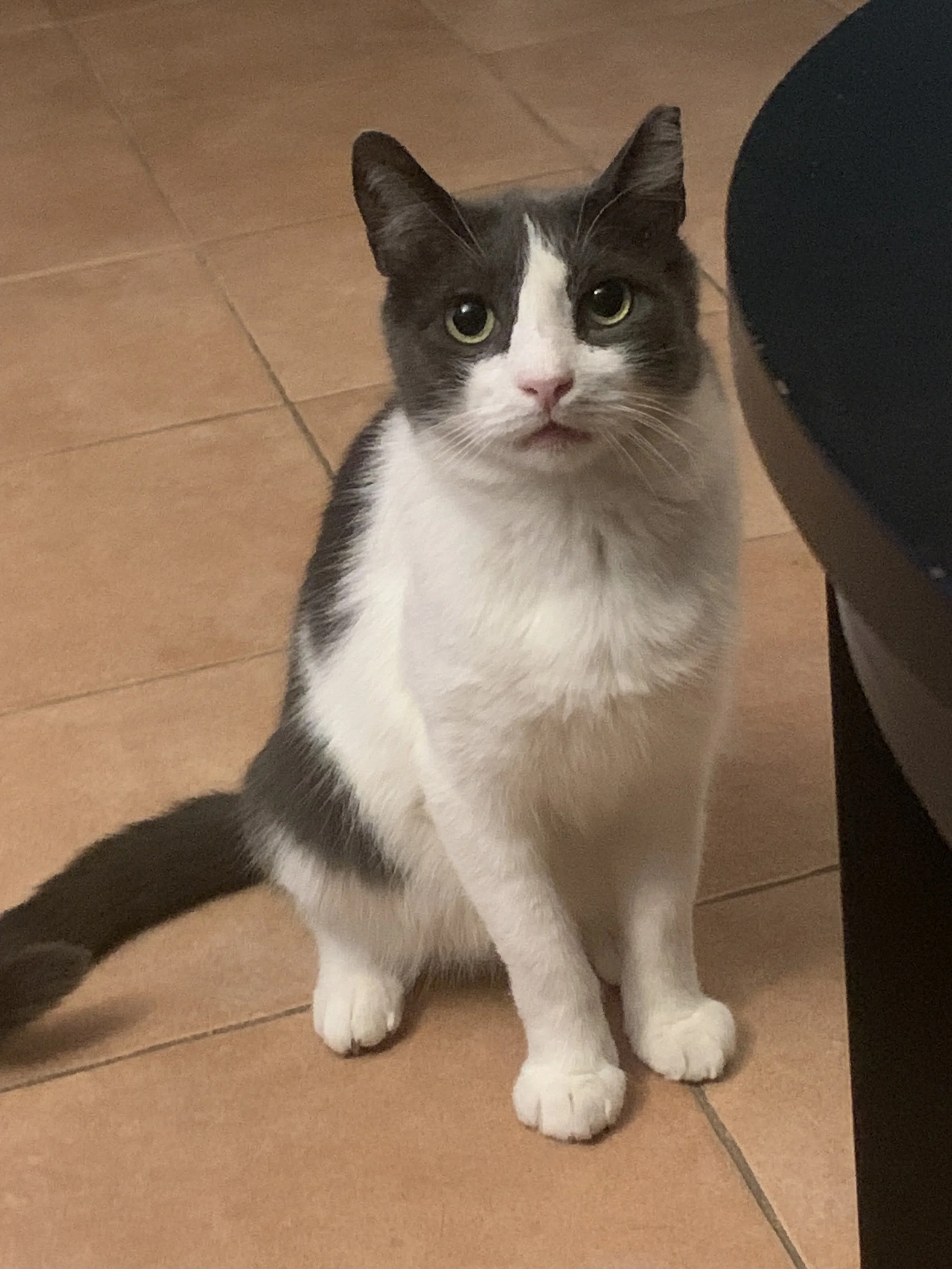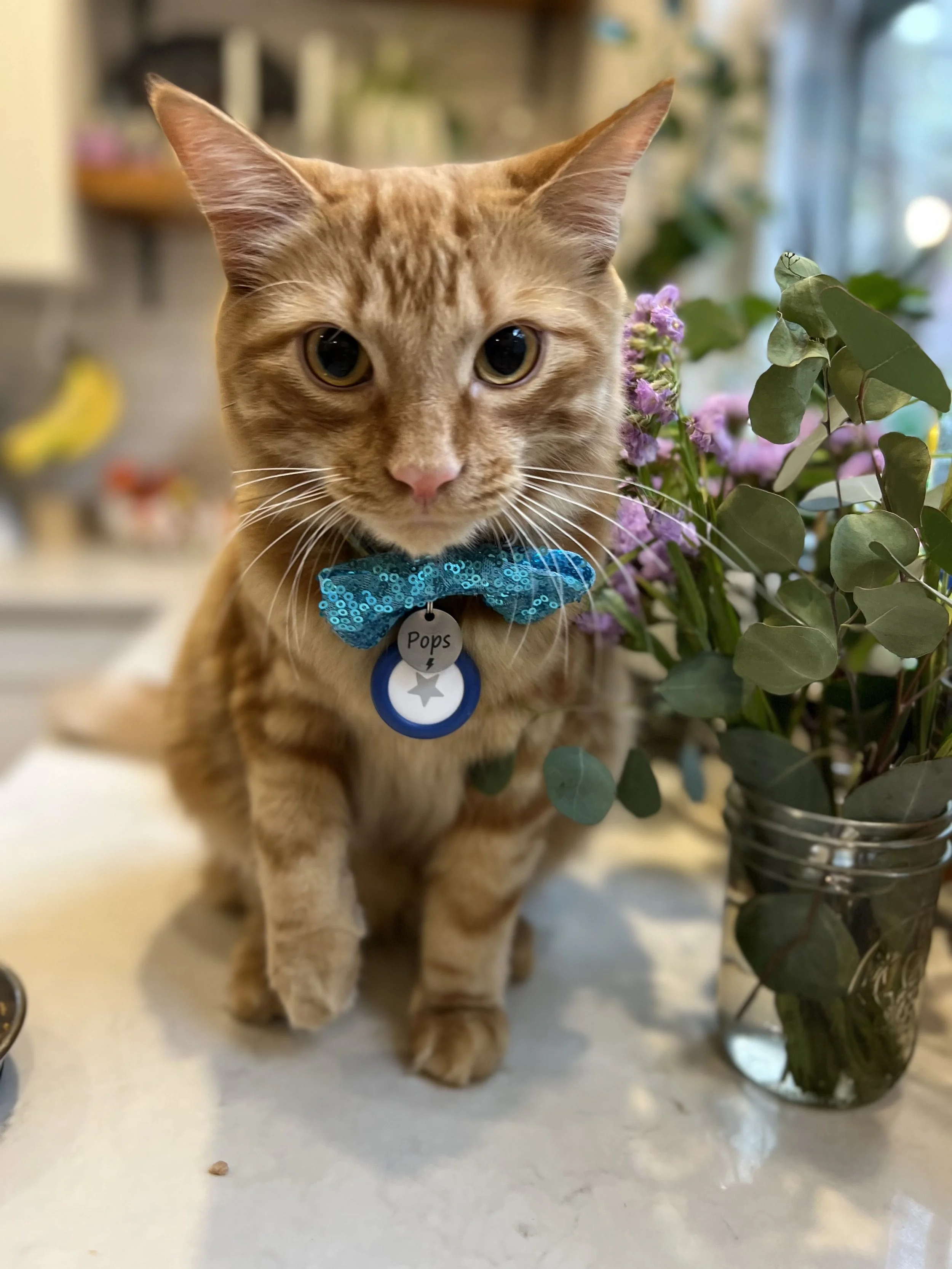Feline Behavior Support
Let’s get you and your cat on the same page.
Photo by Melissa Specht
For most of us, cat behavior isn’t intuitive.
Litter box issues, nuisance behavior, and aggression can be confusing, destabilizing, and damaging to your relationship with your pet. These challenges can feel deeply personal, as though your cat is trying to spite you. After all, why else would they be peeing on your clothes, or scratching the couch after you’ve repeatedly yelled at them to stop?
Here’s the truth: it’s never spite. Your cat doesn’t hate you. They’re trying to communicate - you just speak different languages.
With education and some problem solving, we can close that communication gap, and many behavior issues can be addressed. Park Slope Paws behavioral support can:
Demystify challenging behaviors, so you can understand what your cat is trying to tell you
Problem-solve to find a solution to the behavior that works for both you and your cat
Adapt and refine strategies to make sure we’re getting it right
A few things I can help with:
Litter box issues & house soiling
Aggression (toward other cats & humans)
Nuisance behaviors like scratching
Introductions
Introducing cats & babies
Socialization
General cat questions!
Offerings
-
This offering includes:
A 2-hour in-home visit, where we'll discuss your issue and strategize on how to address it
A written report on what we discussed, along with handouts or any other resources that may be useful
2 months of email follow-up
Clients who live further than 60 minutes from Park Slope, Brooklyn may be asked to pay an additional transportation fee, depending on distance or tolls.
Perfect for: anything requiring an in-person demonstration
$295
-
Anything we can do in an in-person consult, we can do in a virtual consult! This offering includes:
2 hours of virtual visit time, where we'll discuss your issue and strategize on how to address it. This time can be broken up into multiple meetings if that is appropriate for the case.
Recordings of all meetings
A written report on what we discussed, along with handouts or any other resources that may be useful
2 months of email follow-up
Perfect for: cats who are agitated by strangers, clients who live far from Brooklyn
$245
-
Ideal for when you want a second opinion, a gut check, or are looking for advice on preventative measures. This offering includes:
A 60-minute phone call
A write-up of what we discussed, along with any other relevant handouts
One month of email follow-up
This offering is not appropriate for house-soiling cases, inter-cat or human-directed aggression, or reintroductions.
Perfect for: preparing to introduce cats, preparing to introduce a cat & children, scratching, requesting a second opinion, learning clicker training fundamentals or cooperative care
$145
-
Have a really simple question to ask? Book below, or Venmo @Julia-Specht, and then shoot me a message at parkslopepawsinfo@gmail.com!
Examples of simple questions include:
What toys should I get my cat?
What supplies do I need for a new cat?
Why does my cat do this weird thing?
If the question is too complicated for email or indicates a need for a vet visit, I will either refund your money or we can put it toward the cost of a full consultation, whichever makes more sense.
$20
-
Shelters and non-profit rescues are eligible for steep discounts on all consultations - contact me for more information.
-
If you’ve already had a full consult, and would like another in-person or virtual check-in, you can pay a discounted rate for an additional visit.
Virtual follow-ups: $45
In-person follow-ups: $125
Contact to book
Not sure what you need?
Get in touch, and I’ll let you know which offering I recommend.
Sliding scale pricing is available for those struggling with financial stress.
How does a consult work?
Check out my Substack!
Cat People
An exploration of cat behavior, culture, and the ways cats impact our lives.
Photo by Melissa Specht
About Julia
I began my journey with cat behavior by getting involved in rescue in 2022, and quickly discovered that my strength was in supporting rescuers and fosters through behavior challenges. After pursuing education through the International Association of Animal Behavior Consultants, I launched Park Slope Paws as a way to provide compassionate education and carefully-considered strategies to pet parents who are struggling with challenging behaviors.
As someone who has been worked with cat owners during extremely difficult moments, I understand that challenging behaviors from animals can put a massive strain on the lives of their owners. My biggest priorities are sensitivity and empathy, and I’m dedicated to finding solutions that work for humans as well as cats.
Member of IAABC and Pet Professionals Guild
Fear Free Certified (Shelter Program)
Board member of Artemis Animal Rescue
Certified litter box expert through Hippocampus
Over 60 hours of education completed through IAABC and PPG
Frequently Asked Questions
-
We’ll start by going over the cat’s history, and everything you’ve been experiencing to this point. After reviewing all of that, and asking lots of questions, I’ll suggest some science-backed strategies and solutions to try.
But that’s not where we stop! If the solutions I initially come up with don’t work for you, the cat, or your lifestyle, we’ll then do some brainstorming and revising to make them possible. The goal is to come up with a tailored plan that is possible for you to put into practice. We’ll work collaboratively to think of things that are both evidence-based and doable for you.
After that, you’ll be responsible for enacting the plan, but I’ll be available for support and feedback along the way. For full consultation clients, I love to receive updates and review video of training sessions. We can also work together to come up with alternate plans if our original plan isn’t going well.
-
Virtual consultations are a great option for many issues, especially when dealing with cats who may be stressed by a stranger in the home!
We’ll start by talking through your issue and some basic principles, and then I’ll have you take me on a virtual tour of your home. (Ideally, you’re using a device like a laptop or a phone that allows you to show me your whole home.) We’ll then discuss environment, resources, and I’ll probably teach you some skills to train your cat! Teaching training virtually can be a little awkward, but we’ll figure it out together.
I do ask that you not make any special efforts to clean up or change the space on my account. My number one priority is seeing the way the cat is actually living - I promise, I am not judging you or your space! No matter how cluttered your home is, I promise I’ve seen worse, and I don’t care.
If technology is not your strong suit, we can do our best to figure out a tool that works for you.
-
Short answer: I strongly recommend it, especially for house-soiling cases or behavior issues that truly “come out of nowhere”.
For example: if your cat is urinating outside the litter box, that could be a result of any number of things. It could be due to a medical issue, a problem with the box itself, stress, or something entirely different. While I’m a whiz at helping with the last few things - environment, stress, etc. - I can’t diagnose or treat medical issues. We can problem solve til we’re blue in the face, but if (for example) your cat needs antibiotics, then none of my suggestions are going to help.
Why go to a vet first? It takes less time for a vet to rule out a medical problem than it does for me to try every possible behavioral intervention & realize that nothing is working because the problem is physical. In the time it takes us to rule out every strategy, a medical issue could progress from minor to significant. It will also cost you less money in the long run to go to the vet at the beginning than it will to pay me & make no progress.
I recognize that vets are expensive, and this can be frustrating! But you might end up saving money (not to mention, your cat’s life) by going to the vet before calling me. Any sudden change in behavior could be the result of a medical issue and is cause for a vet visit.
If, in the course of our fact-seeking phone call or your initial email, I feel that your first stop should be the vet’s office, I will let you know. And if it turns out that the problem was totally medical and we don’t have a consult, I am happy to refund all or most of my fee, depending on how much time we spend on the phone prior. (If we do a whole consult, I can’t offer a refund - sorry!)
-
Obviously, this varies by issue, but one thing is true in every case - we move at the cat’s pace.
That means that as we work with your cat, we observe their behavior, respond accordingly, and only move forward with interventions when they’re comfortable. Sometimes this takes a while, sometimes it doesn’t.
Because we’re prioritizing the cat’s timeline, it’s impossible to put an exact time frame on how long it will take to address an issue. How long it takes will also depend on the resources we have available, including time, space, and energy. You should expect to do work - behavior changes happen slowly, with daily effort, and while we will work together to find a solution that fits into your life and abilities, there’s probably no magic fix.
However, another thing that’s always true - following the cat’s pace winds up being faster than obsessing over our own schedule. After all, have you ever met a cat who voluntarily plays by someone else’s rules? Yeah, me neither. Putting in the time to learn and follow your cat’s signals will not only help you solve your problem - it’ll deepen your bond.
-
Anyone who has the self-awareness and humility to ask for help is a good cat parent. Reaching out to me is an act of bravery, and I have a lot of respect for anyone who does it! So no, I don’t judge you - I admire your care for your cat, and I am impressed that you’re reaching out at all.
Additionally, there’s a lot of misinformation floating around out there about cats, and a lot of new information that’s coming out every year. I never judge anyone for doing “the wrong thing”, because there are probably a million resources out there advising them to do it. Lots of cat behavior isn’t intuitive, and there’s no reason why you should just “know” how cats work.
I also never judge anyone for feeling frustrated or angry with their cat. Behavior issues can be extremely challenging, and seriously affect a human’s quality of life. It is understandable to have big feelings around it - I’ve certainly felt a lot of emotions when dealing with behavior challenges in my own animals. So however you show up to our meeting is fine - we will work through it, and hopefully leave you in a better place.
Lastly - I am never going to judge your home or the clutter that may or may not be inside it. We’re all doing our best!
-
Hopefully not! I try to find solutions that are as budget-friendly as possible. I know that my fee is already a lot of money for many people, and my first priority is that any ideas I come up with can be executed. Sometimes there will be things that I suggest that you buy, but if they’re too expensive, we can think about alternatives that are more affordable. I will also try to help you find things that are not ugly.









